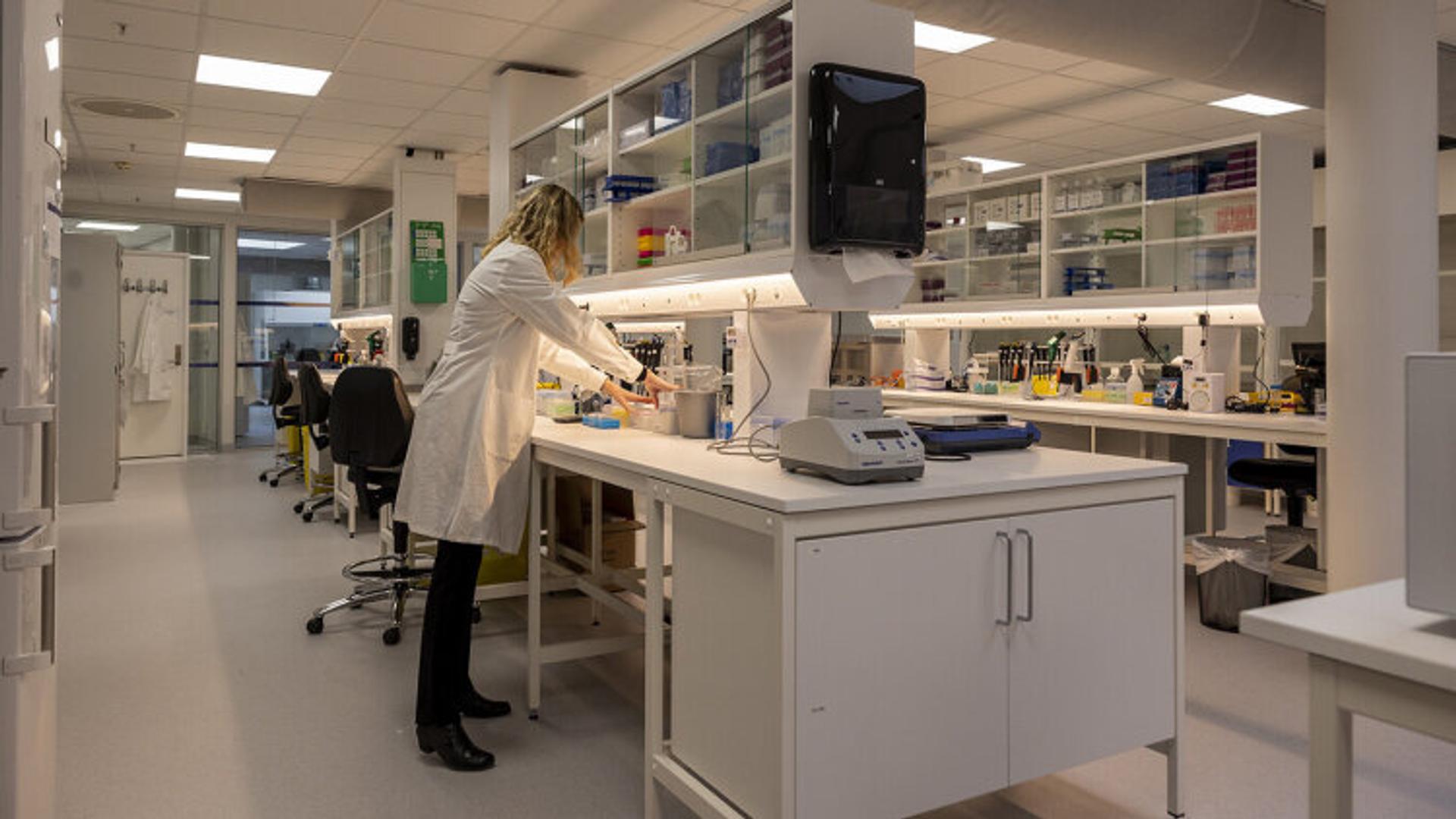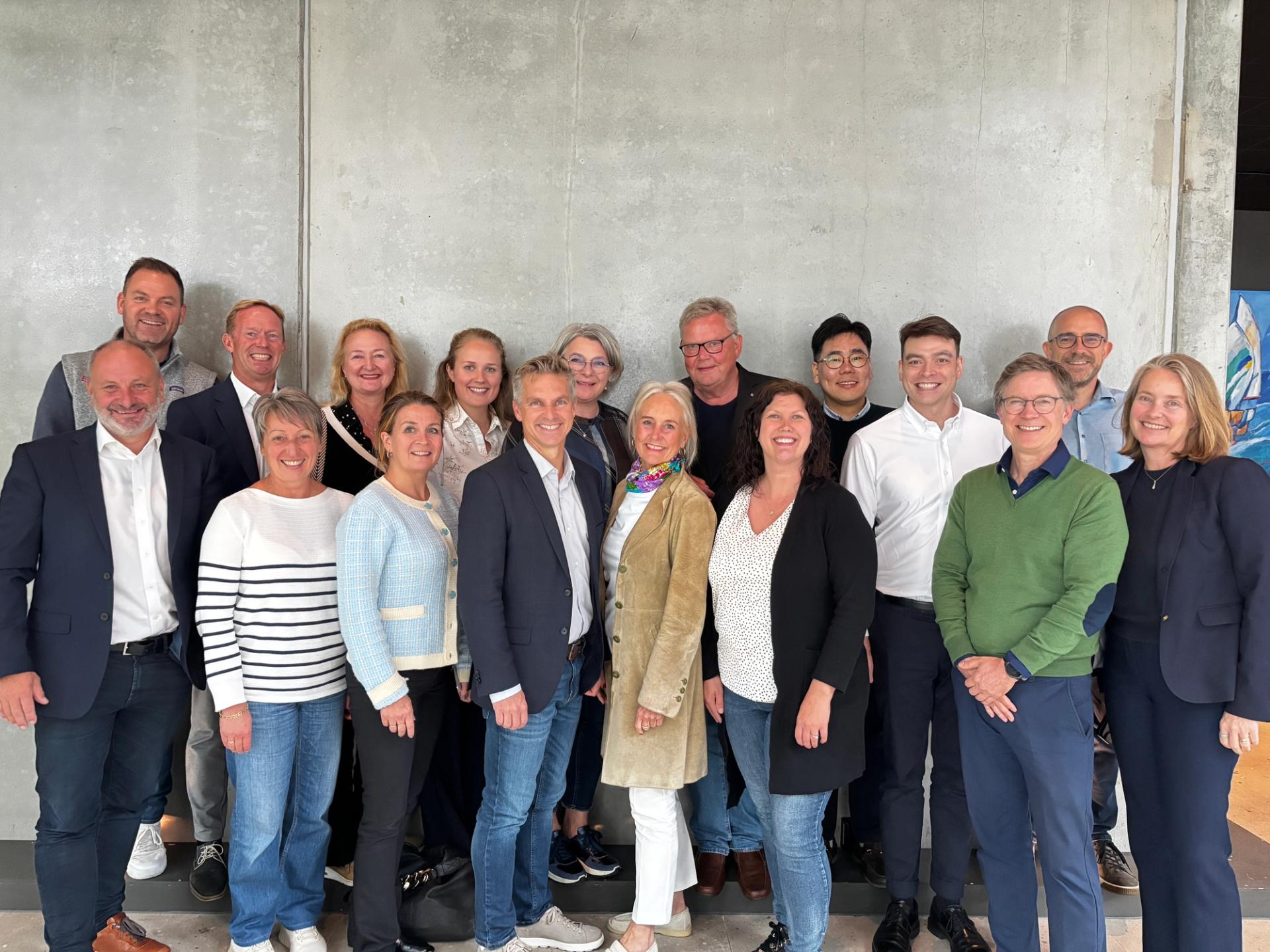Norwegian innovators are pioneering cancer treatment

This sweet spot is clearly attracting international biopharma to Norway. While many Norwegian SMEs collaborate with the big guns, the precision medicine company grabbing the most headlines these days is Nykode Therapeutics, formerly Vaccibody. Nykode discovers and develops novel cancer vaccines and immunotherapies which boost the body’s own immune system to recognise and destroy cancer cells.
Nykode exemplifies the international interest in Norwegian precision cancer medicine. The innovative company can look back on several important milestones. In April 2023, the final data arrived on a phase 2 trial of its main candidate, the cancer vaccine VB10.16, which has been tested on patients with advanced cervical cancer. The results indicate a near doubling of survival rates for this group of patients compared with those undergoing the current alternative forms of treatment.
Global biotech heavyweights
In the past years, the company has signed multimillion dollar agreements with biopharma giants Regeneron and Genentech. It's also collaborating in oncology with Nektar Therapeutics and with Adaptive Biotechnologies on infectious diseases.
“Our international partnerships are an endorsement of the strength of the Norwegian biotech community and the quality of research and innovation taking place in Norway in this field. It’s a stamp of approval from global players,” says Michael Engsig, CEO of Nykode Therapeutics.
Nykode shares the spotlight with 10–15 other innovative oncology companies in Norway. The public listings indicate a growing investment interest in Norwegian biopharma companies. These include BerGenBio, EXACT Therapeutics, Lytix Biopharma, Thor Medical, PCI Biotech, Photocure, Targovax and Ultimovacs.
Close collaboration yields results
In addition to the private sector, Norway’s oncology companies receive key support from the Oslo Cancer Cluster, a non-profit that aims to accelerate the development of new cancer diagnostics and medicines. With some 90 members, the cluster brings together a broad coalition, including Norwegian and international companies, research and financial institutions, and university hospitals.
“I’m happy that the Oslo Cancer Cluster has been established as a supporting organisation. Through collaborations like this, mature companies can help younger companies and vice versa. The cluster acts as an incubator and facilitates public-private partnerships,” says Jannik Grodt Schmidt, Investment Manager for Health and Life Science at Invest in Norway.
Collaboration on precision cancer medicine has led to the launch of the IMPRESS-Norway clinical trial. A nationwide study, IMPRESS aims to improve public cancer care by implementing precision medicine in Norway. The clinical trial tests anti-cancer drugs for patients with advanced cancer after they have already undergone standard therapy. Both industry collaborators and healthcare partners are involved.

A triple win
“Ongoing collaboration is essential to our study. We work with 20 different pharma companies, including Eli Lilly, Incyte, Novartis, and Roche. This allows us to bring new drugs into the pipeline and try out new diagnostic tools. In turn, the companies benefit from high-quality testing of their drugs,” says Åslaug Helland, coordinating principal investigator and co-founder of IMPRESS-Norway.
Coordination takes place within the public sector as well. Organised into a network, all Norwegian hospitals with oncology departments are able to participate in the study and access the new knowledge it generates. NorTrials, meanwhile, is a public-private partnership to boost the number of clinical trials and improve patient access to new treatments.
- Norway: A premier destination for clinical trialsSince 2021, Norway has pursued an ambitious strategy to strengthen its position as a preferred country for clinical trials. Now this is coming to fruition. Today Norway provides a more seamless and efficient pathway for conducting clinical trials than ever before.
 Norway: A destination of excellence for cell therapy trialsCell therapy has revolutionised treatment of haematological cancers, with significant promise for treating solid cancers and autoimmune diseases. Norway has long recognised this vast potential and has built an outstanding cell therapy ecosystem – from innovation and technology to clinical implementation.
Norway: A destination of excellence for cell therapy trialsCell therapy has revolutionised treatment of haematological cancers, with significant promise for treating solid cancers and autoimmune diseases. Norway has long recognised this vast potential and has built an outstanding cell therapy ecosystem – from innovation and technology to clinical implementation.
In addition, IMPRESS-Norway has joined forces with its Nordic neighbours, establishing the Nordic Precision Medical Trial Network with Denmark, Finland, and Sweden and signing an MoU with the Drug Rediscovery Protocol (DRUP) in the Netherlands.
“This is ‘a triple win’ – a win for both cancer patients, investigators, and industry partners. We will generate and gather evidence more quickly on rare combinations of diagnoses, mutation and treatment to allow for early implementation of new cancer medicines,” says Kjetil Tasken, co-founder of IMPRESS-Norway.
Tasken adds that the Norwegian Precision Cancer Medicine Implementation Consortium (CONNECT), a public-private partnership, plays a crucial role, as does InPreD, a national infrastructure of advanced precision diagnostics, and INSIGHT, which conducts research on the regulatory framework for implementing precision cancer medicine in Norway.
He also points out that public funding of diagnostics to stratify patients into trials and of drugs in stage 3 expansion cohorts in the IMPRESS trial plays a key role in facilitating industry collaboration on documenting drug efficacy.
“Norway’s precision medicine ecosystem generates significant value for society and represents a significant opportunity for attracting foreign investment as well as generating future exports.”
Jannik Grodt Schmidt
Investment Manager for Health and Life Science at Invest in Norway
A public healthcare pioneer
Perhaps the most important collaborator of all is the Norwegian government, which has been there from the beginning.
“Norway is known for its publicly funded oncology research. The government made the decision years ago to focus on anti-cancer efforts, in part through basic and applied research. This support has only grown stronger over the years,” says Invest in Norway’s Schmidt.
Oslo University Hospital continues to spearhead research. The Radiumhospitalet Campus is home to Norway's first proton therapy centre at the Norwegian Radium Hospital, the Institute for Cancer Research, Oslo Cancer Cluster Innovation Park and the company Radforsk, which invests in and develops cancer treatment infrastructure through Radforsk Innovation and companies through Radforsk Invest.
Such national coordination would not be possible without publicly funded, universal healthcare.
“The backbone of all our efforts is a well-functioning healthcare system. It allows us to devise a national plan and coordinate all the parties involved,” says IMPRESS-Norway’s Helland.
She goes on to mention Biobank Norway, which facilitates access to world-class data for basic, clinical and medical research. This includes 69 health registries, notably the Cancer Registry of Norway and its sub-registries.
“Norway’s precision medicine ecosystem generates significant value for society and represents a significant opportunity for attracting foreign investment as well as generating future exports. This is a promising sector under development. Norway should be known for innovation and disruption in the medical field,” concludes Schmidt.
 Norway’s groundbreaking role in alpha therapy and radiopharmaceuticalsNorway is an undisputed global leader in radiopharmaceuticals. Notably, it is the birthplace of Xofigo®, the highly successful, groundbreaking drug for advanced prostate cancer. This is the story of Xofigo – not only its history but also how it fuels Norway’s ongoing success in radiopharmacy, especially in advanced personalised medicine in oncology.
Norway’s groundbreaking role in alpha therapy and radiopharmaceuticalsNorway is an undisputed global leader in radiopharmaceuticals. Notably, it is the birthplace of Xofigo®, the highly successful, groundbreaking drug for advanced prostate cancer. This is the story of Xofigo – not only its history but also how it fuels Norway’s ongoing success in radiopharmacy, especially in advanced personalised medicine in oncology. Norway leads global efforts in theranostics, a promising precision cancer treatmentNorway is a global hub for theranostics development, thanks to its robust environments in radiopharmaceuticals, advanced medical imaging and precision medicine in oncology.
Norway leads global efforts in theranostics, a promising precision cancer treatmentNorway is a global hub for theranostics development, thanks to its robust environments in radiopharmaceuticals, advanced medical imaging and precision medicine in oncology. Norway blazes new trails in nuclear medicine imaging and diagnosticsWith decades of innovation in radiopharmacy and radiodiagnostics, Norway continues to break ground in medical imaging, diagnostics and PET scan technology, providing new hope to patients with serious diseases such as metastasised cancer.
Norway blazes new trails in nuclear medicine imaging and diagnosticsWith decades of innovation in radiopharmacy and radiodiagnostics, Norway continues to break ground in medical imaging, diagnostics and PET scan technology, providing new hope to patients with serious diseases such as metastasised cancer.


